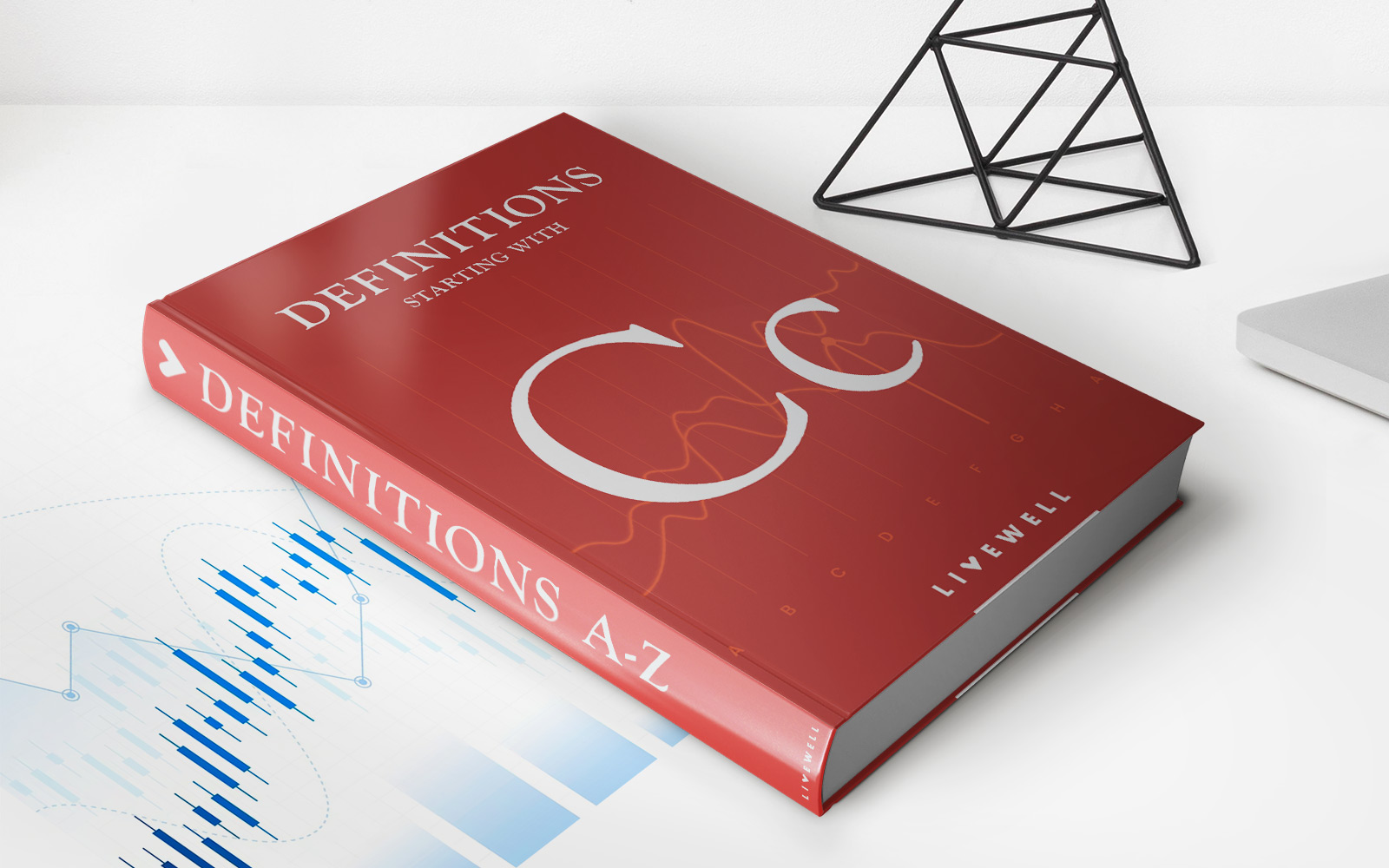Home>Finance>When Is The First Payment Due After The Grace Period?


Finance
When Is The First Payment Due After The Grace Period?
Published: February 21, 2024
Learn about the first payment due after the grace period in finance. Understand the importance of timely payments and how to avoid late fees.
(Many of the links in this article redirect to a specific reviewed product. Your purchase of these products through affiliate links helps to generate commission for LiveWell, at no extra cost. Learn more)
Table of Contents
Introduction
Understanding the Importance of the First Payment Due Date After the Grace Period
Managing personal finances involves various responsibilities, and one crucial aspect is the timely payment of bills and loans. Whether it's a credit card, mortgage, student loan, or any other form of debt, understanding the first payment due date after the grace period is essential for maintaining financial health. This article delves into the significance of this date, the factors influencing it, and the repercussions of missing it.
The first payment due date after the grace period holds considerable weight in the realm of personal finance. It marks the deadline for making the initial payment on a new loan or line of credit, following the expiration of the grace period. Failing to comprehend and adhere to this deadline can lead to detrimental consequences, including financial penalties, damage to credit scores, and potential strain on one's overall financial well-being.
Navigating the intricacies of loan repayment timelines can be overwhelming, especially for individuals who are new to borrowing or are faced with multiple financial obligations. By shedding light on the significance of the first payment due date, this article aims to empower readers with the knowledge needed to navigate their financial responsibilities effectively.
Understanding the implications of missing the first payment due date after the grace period is crucial for maintaining financial stability and peace of mind. Therefore, delving into the factors that influence this date and the potential repercussions of non-compliance can equip individuals with the insights needed to make informed decisions and take proactive measures to safeguard their financial well-being.
Understanding the Grace Period
The grace period is a vital component of loan and credit agreements, providing borrowers with a window of time beyond the due date during which they can make payments without incurring penalties. This period typically ranges from a few days to a month, offering borrowers a valuable opportunity to manage their finances and submit payments without facing adverse consequences.
During the grace period, borrowers have the chance to rectify any potential delays or financial constraints that may have hindered their ability to make timely payments. This flexibility is designed to accommodate unexpected circumstances and ensure that borrowers are not unduly penalized for transient financial challenges.
It’s important to note that the specifics of the grace period, including its duration and applicable terms, are outlined in the loan or credit agreement. Therefore, borrowers should familiarize themselves with these details to leverage the grace period effectively and avoid any misunderstandings regarding the first payment due date.
Understanding the nuances of the grace period empowers borrowers to navigate their financial obligations with confidence. By recognizing the buffer it provides and the implications of exceeding it, individuals can proactively manage their repayment schedules and mitigate the risk of incurring late fees or other penalties.
Moreover, comprehending the grace period underscores the significance of adhering to the first payment due date after its expiration. This knowledge serves as a cornerstone of responsible financial management, enabling borrowers to stay informed and in control of their repayment timelines.
Ultimately, the grace period serves as a safeguard against immediate repercussions for missed payments, emphasizing the importance of timely and informed financial decision-making. By grasping its function and implications, borrowers can approach their financial responsibilities with clarity and foresight, fostering a proactive and sustainable approach to managing their loans and credit obligations.
Importance of Knowing the First Payment Due Date
Understanding the first payment due date after the grace period is paramount for borrowers as it directly impacts their financial well-being and credit standing. By being cognizant of this crucial date, individuals can effectively plan their budgets, allocate funds, and avoid the repercussions of missed payments.
One of the primary reasons for emphasizing the importance of knowing the first payment due date is to prevent the accrual of late fees and penalties. Timely payment is not only a contractual obligation but also a means of avoiding unnecessary additional costs that can strain one’s financial resources. By knowing the exact date by which the first payment must be made, borrowers can organize their finances and ensure that they meet this critical deadline.
Furthermore, awareness of the first payment due date enables borrowers to align their repayment schedule with their cash flow, thereby preventing cash shortages and potential financial strain. This proactive approach allows individuals to anticipate their financial commitments and make necessary arrangements to meet their payment obligations on time.
Another pivotal aspect of knowing the first payment due date is its direct impact on credit scores. Timely payments are instrumental in maintaining a positive credit history, which is indispensable for future borrowing opportunities and favorable interest rates. Conversely, missing the first payment due date can lead to adverse effects on credit scores, potentially hindering access to credit and impeding financial progress.
Moreover, understanding the first payment due date fosters a sense of financial discipline and accountability. By acknowledging this date as a non-negotiable commitment, borrowers can cultivate responsible financial habits and prioritize their repayment obligations, contributing to their overall financial well-being.
In essence, the first payment due date holds significant implications for borrowers, encompassing financial, credit-related, and behavioral aspects. By recognizing its importance and integrating it into their financial planning, individuals can navigate their repayment responsibilities with confidence and mitigate the risk of adverse financial outcomes.
Factors Affecting the First Payment Due Date
The first payment due date after the grace period is influenced by various factors, each of which can impact borrowers’ financial planning and obligations. Understanding these factors is crucial for borrowers seeking to effectively manage their repayment timelines and avoid potential pitfalls.
Loan Type and Terms: Different types of loans, such as mortgages, auto loans, and student loans, may have varying terms that affect the first payment due date. For instance, some loans may require the first payment shortly after the grace period, while others may allow for a more extended period before the initial payment is due. Familiarizing oneself with the specific terms of the loan is essential for determining the first payment due date.
Grace Period Duration: The duration of the grace period itself is a significant factor influencing the first payment due date. A shorter grace period necessitates prompt attention to the subsequent due date, while a longer grace period provides a more extended window for borrowers to prepare for the initial payment.
Loan Disbursement Date: The date on which the loan funds are disbursed can impact the timing of the first payment due date. Understanding this date in relation to the grace period enables borrowers to anticipate when the first payment will be due, allowing them to align their finances accordingly.
Payment Frequency: The frequency of loan payments, whether monthly, bi-monthly, or otherwise, can affect the scheduling of the first payment due date. Borrowers should consider the payment frequency in conjunction with the grace period to ensure they are prepared for the initial installment.
Communication with Lender: In some cases, borrowers may have the flexibility to negotiate the first payment due date with the lender, particularly if they encounter challenges aligning it with their financial circumstances. Open communication with the lender can provide insights into available options and facilitate a mutually agreeable repayment schedule.
Overall Financial Planning: Borrowers’ individual financial situations and planning play a crucial role in determining their readiness for the first payment due date. By considering their cash flow, budgeting, and other financial commitments, individuals can proactively prepare for the initial payment, minimizing the risk of financial strain or missed deadlines.
By taking into account these factors, borrowers can proactively manage the first payment due date after the grace period, ensuring that they are well-prepared to meet their repayment obligations in a timely and informed manner.
Consequences of Missing the First Payment Due Date
Missing the first payment due date after the grace period can have far-reaching repercussions, impacting borrowers’ finances, credit standing, and overall well-being. It is essential for individuals to grasp the potential consequences of non-compliance with this critical deadline to avoid adverse outcomes and safeguard their financial stability.
One of the immediate consequences of missing the first payment due date is the imposition of late fees or penalties by the lender. These additional charges can exacerbate the financial burden associated with the loan, potentially leading to increased debt and financial strain. Moreover, late payments may also result in a negative impact on the borrower’s credit score, affecting their creditworthiness and future borrowing opportunities.
Furthermore, missed payments can trigger adverse effects on the borrower’s credit report, potentially tarnishing their credit history and impeding their access to favorable credit terms in the future. A history of delinquent payments can erode trust with lenders and may limit the borrower’s financial flexibility and options.
In addition to financial and credit-related consequences, missing the first payment due date can also lead to increased stress and anxiety for borrowers. The looming repercussions of delinquency may contribute to feelings of insecurity and uncertainty, impacting overall well-being and mental health.
Moreover, persistent delinquency and non-compliance with repayment obligations can result in more severe measures, such as collection efforts and potential legal actions by the lender. These outcomes can further exacerbate the financial and emotional toll on borrowers, underscoring the importance of prioritizing timely payments and adherence to the first payment due date.
By understanding the potential consequences of missing the first payment due date, borrowers can appreciate the gravity of this deadline and take proactive measures to prevent non-compliance. This awareness underscores the significance of responsible financial management and the impact of timely repayment on one’s financial health and overall well-being.














